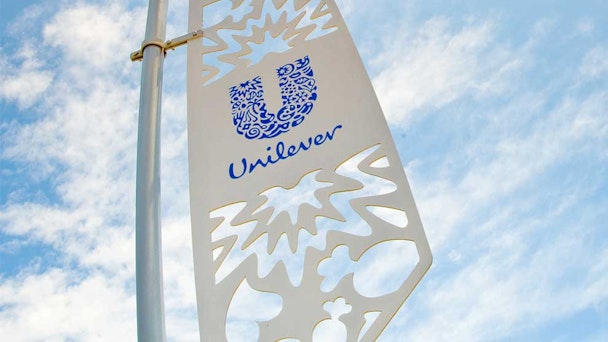Unilever to up marketing investment in second half of the year after €200m cutbacks
Unilever has committed to up its brand and marketing investment in the second half of the year following a series of cutbacks, as it seeks “accelerated” growth following a “substantial” increase in first-half profits.

Unilever to invest in marketing
The Dove and Persil owner has been on an efficiencies drive when it comes to advertising spend following a move to zero-based budgeting, revealing earlier this year that it would slash its ad production by as much as 30% and the some 3,000 agencies it worked with by as much as half in a bid to manage costs.
Updating on the progress, it revealed that spend on agency fees is down 17% compared to 2016 while the production cost of TV ads is down 14%. Absolute levels of spend were down "about €200m" in the first half overall.
"In brand and marketing investment, we have delivered more than €300m of savings through the zero based budgeting," said chief financial officer Graeme Pitkethly. "Certainly it helped us to reduce wasted investment to drive efficiencies and to improve effectiveness."
Thanks to the “discipline” in this savings programme and “recalibration of advertising spend” across markets, Unilever saw underlying sales grow 3% while profit before tax rose to €4.6bn (£4bn) from €3.6bn (£3.2bn) in the same period last year.
In its personal care category – which covers brands like Dove and Axe – underlying operating margin was up 2.4% thanks to “brand and marketing efficiencies from zero-based budgeting and the phasing of brand and marketing investment.”
Meanwhile, in food and home care, underlying operating margins improved by 1% and 1.1% respectively as a result of marketing cuts.
“Our first half results show continued growth well ahead of our markets and a substantial step-up in profitability despite the persisting volatile global trading environment,” said chief executive Paul Polman.
However, seeking greater efficiencies and productivity does not mean it's culling its marketing investment.
Polman went on to add that the “transformation of Unilever into a more resilient, more competitive and more profitable business is accelerating” and as a result it will “step-up” brand and marketing investment, meaning that total ad spend will be “maintained at last year’s level in absolute terms.”
"We have a second half weighted innovation program and we do expect therefore to step-up the brand and marketing investment. As we said before, we want to make sure that we are investing to keep the growth momentum going," added Pitkethly.
However, this won’t necessarily be welcome news for agencies – namely holding group WPP, which has felt the impact from Unilever’s titanic shift.
The FMCG giant has been assembling a raft of in-house content studios dubbed U-Studio (for digital content) and U-Entertainment (focused on entertainment-driven content like web series, games and music integration), which have been taking greater portions of advertising budgets since being established last year.
The company also said it was seeing a sustained 40% growth in e-commerce and is now “building capability in all models” including how it serves up products on traditional grocery sites, such as Tesco and Asda, as well as marketplaces such as Alibaba and Amazon and through direct-to-consumer.
Its performance in China was called out as particularly strong, “driven by rapid e-commerce sales,” it said.
Unilever has been investing heavily into e-commerce for the past three years, experimenting with everything from startup hackathons to setting up formal teams in established regions in order to build direct relationships with shoppers that have traditionally been facilitated by retailers.

